第54章 Chapter 12(1)
1855-1858
'Men and Women'--'Karshook'--'Two in the Campagna'--Winter in Paris;Lady Elgin --'Aurora Leigh'--Death of Mr.Kenyon and Mr.Barrett --Penini --Mrs.Browning's Letters to Miss Browning --The Florentine Carnival --Baths of Lucca --Spiritualism --Mr.Kirkup;Count Ginnasi --Letter from Mr.Browning to Mr.Fox --Havre.
The beautiful 'One Word More'was dated from London in September;and the fifty poems gathered together under the title of 'Men and Women'
were published before the close of the year,in two volumes,by Messrs.Chapman and Hall.They are all familiar friends to Mr.Browning's readers,in their first arrangement and appearance,as in later redistributions and reprints;but one curious little fact concerning them is perhaps not generally known.In the eighth line of the fourteenth section of 'One Word More'they were made to include 'Karshook (Ben Karshook's Wisdom)',which never was placed amongst them.
It was written in April 1854;and the dedication of the volume must have been,as it so easily might be,in existence,before the author decided to omit it.
The wrong name,once given,was retained,I have no doubt,from preference for its terminal sound;and 'Karshook'only became 'Karshish'
in the Tauchnitz copy of 1872,and in the English edition of 1889.
'Karshook'appeared in 1856in 'The Keepsake',edited by Miss Power;but,as we are told on good authority,has been printed in no edition or selection of the Poet's works.I am therefore justified in inserting it here.
I'Would a man 'scape the rod?'
Rabbi Ben Karshook saith,'See that he turn to God The day before his death.'
'Ay,could a man inquire When it shall come!'I say.
The Rabbi's eye shoots fire --
'Then let him turn to-day!'
II
Quoth a young Sadducee:
'Reader of many rolls,Is it so certain we Have,as they tell us,souls?'
'Son,there is no reply!'
The Rabbi bit his beard:
'Certain,a soul have _I_--
WE may have none,'he sneer'd.
Thus Karshook,the Hiram's-Hammer,The Right-hand Temple-column,Taught babes in grace their grammar,And struck the simple,solemn.
Among this first collection of 'Men and Women'was the poem called 'Two in the Campagna'.It is a vivid,yet enigmatical little study of a restless spirit tantalized by glimpses of repose in love,saddened and perplexed by the manner in which this eludes it.
Nothing that should impress one as more purely dramatic ever fell from Mr.Browning's pen.We are told,nevertheless,in Mr.Sharp's 'Life',that a personal character no less actual than that of the 'Guardian Angel'has been claimed for it.The writer,with characteristic delicacy,evades all discussion of the question;but he concedes a great deal in his manner of doing so.The poem,he says,conveys a sense of that necessary isolation of the individual soul which resists the fusing power of the deepest love;and its meaning cannot be personally --because it is universally --true.
I do not think Mr.Browning meant to emphasize this aspect of the mystery of individual life,though the poem,in a certain sense,expresses it.
We have no reason to believe that he ever accepted it as constant;and in no case could he have intended to refer its conditions to himself.
He was often isolated by the processes of his mind;but there was in him no barrier to that larger emotional sympathy which we think of as sympathy of the soul.If this poem were true,'One Word More'would be false,quite otherwise than in that approach to exaggeration which is incidental to the poetic form.
The true keynote of 'Two in the Campagna'is the pain of perpetual change,and of the conscious,though unexplained,predestination to it.
Mr.Browning could have still less in common with such a state,since one of the qualities for which he was most conspicuous was the enormous power of anchorage which his affections possessed.
Only length of time and variety of experience could fully test this power or fully display it;but the signs of it had not been absent from even his earliest life.He loved fewer people in youth than in advancing age:nature and circumstance combined to widen the range,and vary the character of his human interests;but where once love or friendship had struck a root,only a moral convulsion could avail to dislodge it.I make no deduction from this statement when I admit that the last and most emphatic words of the poem in question,Only I discern --Infinite passion,and the pain Of finite hearts that yearn,did probably come from the poet's heart,as they also found a deep echo in that of his wife,who much loved them.
From London they returned to Paris for the winter of 1855-6.
The younger of the Kemble sisters,Mrs.Sartoris,was also there with her family;and the pleasant meetings of the Campagna renewed themselves for Mr.Browning,though in a different form.
He was also,with his sister,a constant visitor at Lady Elgin's.
Both they and Mrs.Browning were greatly attached to her,and she warmly reciprocated the feeling.As Mr.Locker's letter has told us,Mr.Browning was in the habit of reading poetry to her,and when his sister had to announce his arrival from Italy or England,she would say:'Robert is coming to nurse you,and read to you.'
Lady Elgin was by this time almost completely paralyzed.
She had lost the power of speech,and could only acknowledge the little attentions which were paid to her by some graceful pathetic gesture of the left hand;but she retained her sensibilities to the last;and Miss Browning received on one occasion a serious lesson in the risk of ever assuming that the appearance of unconsciousness guarantees its reality.Lady Augusta Bruce had asked her,in her mother's presence,how Mrs.Browning was;and,imagining that Lady Elgin was unable to hear or understand,she had answered with incautious distinctness,'I am afraid she is very ill,'
when a little sob from the invalid warned her of her mistake.